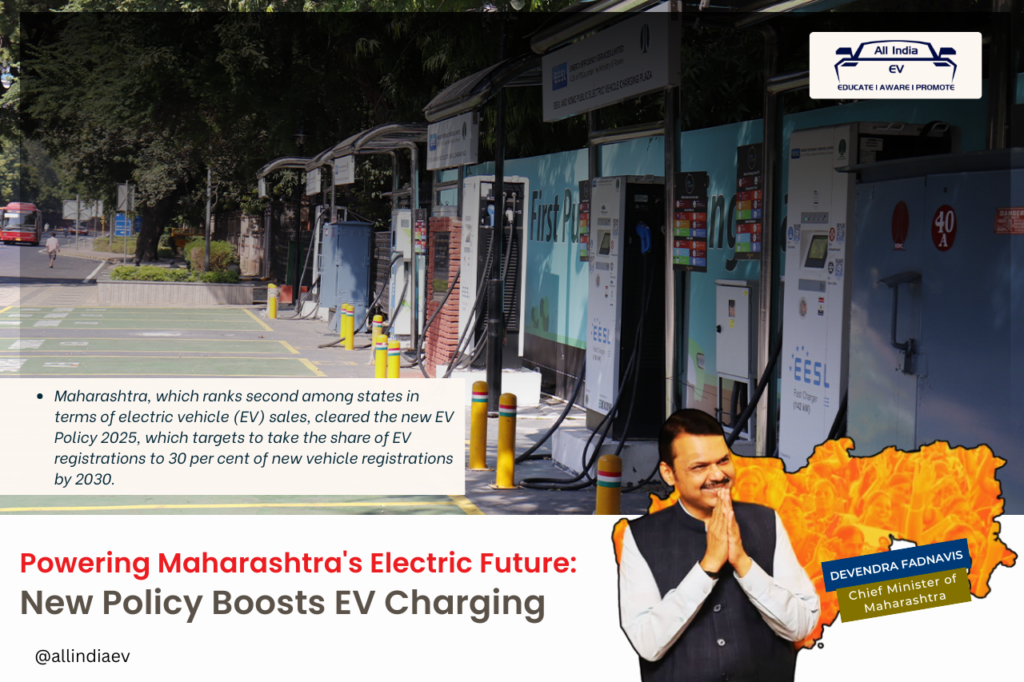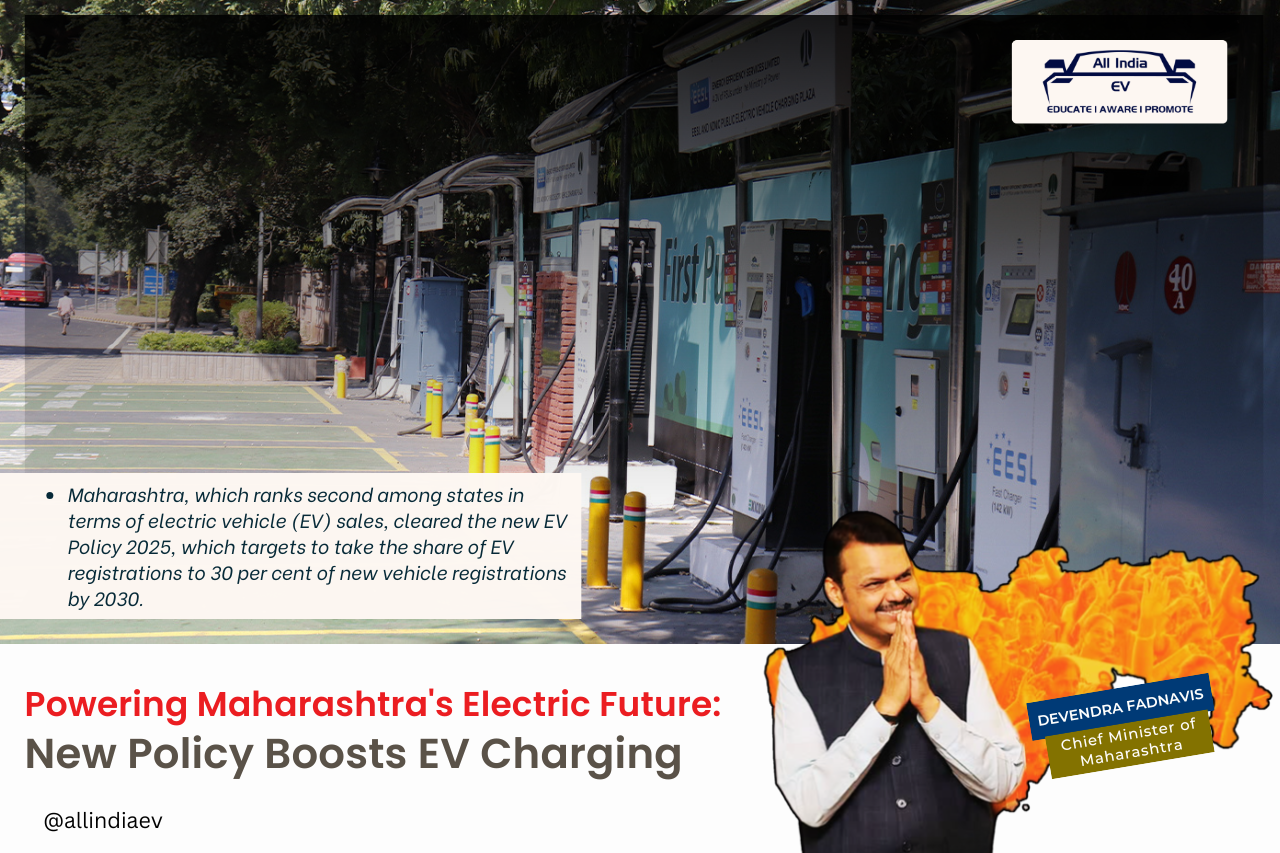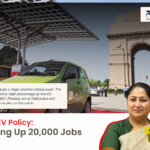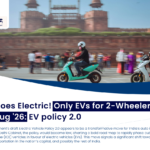
The state will support public EV charging operators with viability gap funding to set up new charging stations across Maharashtra.
In a landmark move set to reshape India’s electric mobility landscape, the Government of Maharashtra has unveiled its Electric Vehicle Policy 2025, aiming for a 30% share of EVs in new vehicle registrations by 2030. With a substantial outlay of ₹1,995 crore, this ambitious policy places a strong emphasis on accelerating charging infrastructure, addressing one of the key bottlenecks in EV adoption.
As per the India EV tracking data, Maharashtra stood second in the country for EV sales in 2024, contributing 12% to the national total, trailing only Uttar Pradesh. The new policy signals the state’s intent to not only retain but strengthen its leadership in India’s EV transition.
🔋 Incentives Get a Wider Net
Speaking to media, Sanjay Sethi, Additional Chief Secretary (Transport), confirmed that the number of vehicle categories eligible for state incentives has grown from five to thirteen. This includes high-emission heavy commercial vehicles, private buses, utility vehicles, trailers, dumper trucks, and even agricultural trailers—a significant shift toward inclusivity in EV support.
Under the new policy:
- Incentives will range from ₹10,000 for electric two-wheelers to ₹20 lakh for e-buses.
- Private buses, previously excluded, are now eligible for subsidy.
- Urban utility and waste transport fleets operated by municipal corporations will also benefit.
🛣️ Toll-Free Highways for EVs: A First for India
In an unprecedented step, key highways in Maharashtra will become toll-free for EVs, including:
- Mumbai–Pune Expressway
- Samruddhi Mahamarg (Nagpur–Mumbai)
- Atal Setu (Mumbai Trans Harbour Link)
- Plus, phased toll waivers on all PWD-maintained highways
This initiative is expected to not only incentivize EV purchases but also reduce operating costs for fleet owners and long-haul transporters.
⚡ Charging Infrastructure to Expand Rapidly
Maharashtra is tackling the infrastructure gap head-on. Sethi confirmed:
- MOUs will be signed with oil marketing companies to deploy chargers at fuel stations (target: 60–70% coverage).
- All state transport depots to have dedicated EV charging spaces.
- Viability gap funding of up to ₹10 lakh per station for new public charging operators.
- Mandatory EV charging points in new residential societies; existing ones can opt-in with 50% resident approval.
- Commercial buildings must also install chargers.
- Urban areas to have designated battery recycling zones in dumping yards.
These efforts aim to overcome the issue of charging deserts—especially in densely populated metros like Mumbai and along critical freight corridors.
📊 EV Adoption: The Numbers Speak
As of January 1, 2025, Maharashtra had 48.8 million registered vehicles, up from 45.8 million the previous year. EVs saw impressive growth:
- BEVs registered as of Dec 2024: 644,779
- Up from 394,337 in Dec 2023—a year-on-year growth of 63%
This robust increase reflects growing consumer confidence, but stakeholders agree that charging infrastructure remains the key to sustaining this momentum.
🧭 Industry Reaction
While automakers are analyzing the full scope of the new policy, industry insiders welcomed the forward-looking approach.
“If implemented effectively, this policy can drastically reduce range anxiety and operating costs, especially for commercial fleets,” said a senior executive at a leading OEM. “We hope to see fast charger deployment beyond major urban centers, extending into rural and highway networks.”
Maharashtra’s latest policy marks a turning point for India’s EV movement. With a bold vision, financial commitment, and actionable strategies, the state sets a new benchmark. If the charging infra expansion keeps pace with vehicle growth, this policy could become the blueprint for other states to emulate in India’s race toward net-zero transportation.










